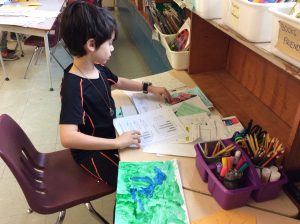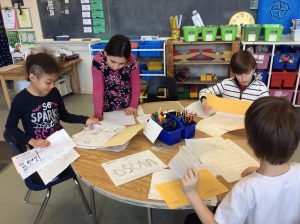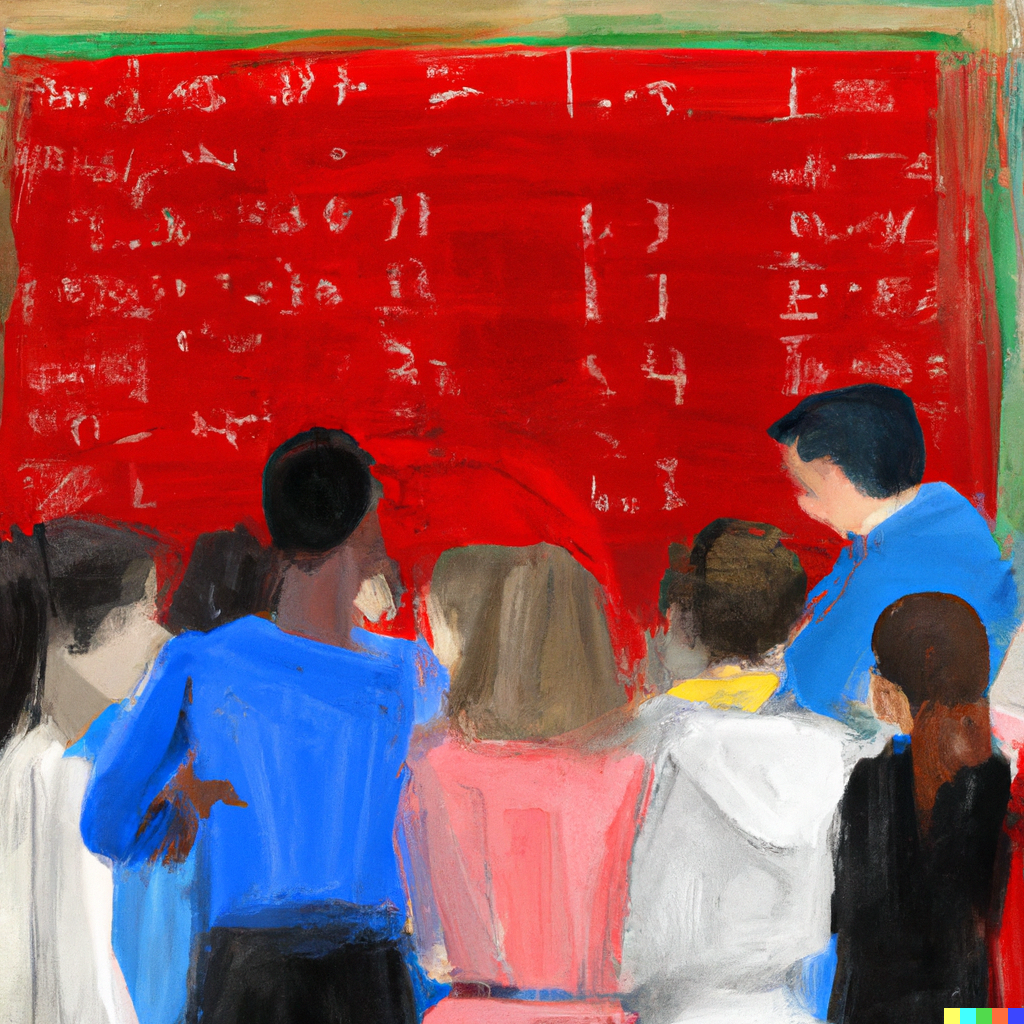Writing report cards and IEPs during COVID-19 was frustrating and stressful. COVID-19 has exposed deep inequities that affect families disproportionately, and it has impacted teaching, learning and assessment in significant ways. There are so many challenges to assessing and evaluating students on-line, and there are many strengths/skills that cannot be measured on a report card.
Needs Improvement
The current assessment, evaluation and reporting practices and procedures needs improvement. Ontario schools reflect a colonial, Eurocentric approach to curriculum and assessment that privileges some students over others. Report cards and IEPs measure students against standardized levels of achievement, which fail to recognize multiple and different ways of knowing. There is extensive research about the impacts of systemic racism and educator bias, which construct certain students as “failures”.
Most of our professional development is focussed on how we can meet the diverse needs of students and make the curriculum more inclusive; however, we also need to think critically about how assessment and evaluation practices reinforce racial inequity, and privilege student “success” and belonging. How might we transform our assessment and evaluation so that all students feel empowered to achieve excellence, and feel successful?
Collaborative Assessment
Student-Led Conferences are one example of how educators might disrupt traditional forms of evaluation, and facilitate a more collaborative approach to assessment. In a previous blog, I wrote about how collaborative assessment actively engages families, educators and students as co-learners, and helps to build trusting relationships that are reciprocal.
Student-Led Conferences, goal-setting and self-evaluation are powerful examples of how collaborative assessment can center student voice, support meta-cognition, and develop critical thinking and self-reflective skills. Collaborative assessment can increase student engagement and motivation, and has been shown to impact student achievement and behaviour.
What is a Student-Led Conference?
Every year, I prepare my students to facilitate a Student-Led Conference with their family in February and June. This is an alternative to the Parent-Teacher Conference, and often tells a counter narrative to the report card. Usually, there are 4-5 conferences happening in the classroom at one time, and I will rotate between families to listen and add to the discussion. These conferences can last anywhere between 15-45 minutes.
It is my hope that Student-Led Conferences support all students to feel successful, because they create meaningful opportunities for students to identify their strengths, and share evidence of how well they are meeting their learning goals. They also invite families and educators to share responsibility in the teaching and learning process.
What happens BEFORE a Student-Led Conference?
At the beginning of the year, most schools invite families to visit the classroom and meet their child’s teacher to learn about the curriculum expectations and classroom routines. During this discussion when I introduce our learning goals, I also share information about collaborative assessment and Student-Led Conferences. I explain the benefits, provide resources, and invite families to ask questions.
As we begin to build relationships and honour all of our “multiple intelligences” and different ways of knowing, I encourage students to set individual short-term goals that are “just right” for them. We talk about our strengths and struggles as we learn about different folks who have worked hard to overcome barriers and achieve excellence. Older students might engage in diagnostic surveys to find out how they feel about different subjects.
Portfolios
Every student will develop a portfolio, which will hold samples of work that demonstrate growth and learning in concrete ways. Some of these work samples will be chosen by the student and others will be chosen by educators. For example, I always include goal-setting and self-evaluation, as well as our monthly unedited, unassisted writing samples in their portfolio.
In January and June, in preparation for a Student-Led Conference, students will look through completed work, and choose samples of work that they are proud of. In my class, students staple a piece of paper to this work and write about why they are proud of it. Students also have the opportunity to look back at work samples, and identify how they know they are growing. This process can take several days, and it is a great opportunity to reflect and set new goals for Term #2 in January and/or for the summer in June.


Student Voice:
Before writing the report card, I always ask students to reflect on their Learning Skills and Work Habits and complete a self-evaluation. As a class, we might discuss each skill and generate “success criteria” and specific examples that relate to our learning together. I often try to include student voices in the report card, and quote their writing and self-reflection. It is critical that students understand the criteria by which they are being evaluated, and that they have opportunities to share their thinking about themselves as learners. It is invaluable formative feedback for educators and families.
During COVID-19, our Student-Led Conferences have continued on-line. I created a Google Form, and asked families to help their child answer questions about their learning. The form included opportunities for students to identify their strengths and areas for improvement in different subject areas, as well as the Learning Skills and Work Habits. These “stars” and “wishes”, or “GLOW” and “GROW” comments helped to guide our discussion during our virtual Student-Led Conference. I shared the screen and asked the students to read their ideas aloud, and invited families to share feedback. I was only able to support one conference at a time, but I believe it was worth the extra time.
What happens DURING a Student-Led Conference?
Student-Led Conferences will look different depending on the age of the student. In the early primary years, I provide families with a checklist and sentence prompts to help support the discussion. Older students can follow a script to lead the discussion. During a Student-Led Conference, students will share their portfolio with their family. Families are encouraged to listen, ask questions and share what they notice about their child’s growth and progress. My role is to circulate around the room, listen, and contribute observations and reflections to the discussion.
What happens AFTER a Student-Led Conference?
After a Student-Led Conference, I provide a template and ask families to write a letter to their child. This letter describes what they are proud of, and how they will help their child to achieve their learning goals. In my experience, families have found the Student-Led Conference to be meaningful and informative.
One Kindergarten parent wrote:
It really opened up space for dialogue about what types of learning matter to our child, some of which were a pleasant surprise to us that we can carry forward at home now as well. Also, being able to experience his learning environment at school from his perspective was deeply gratifying for us and self-esteem building for him. He was so proud to show us around the space and really demonstrate the independence he’s building there. Grateful for the entire process and so heartened to know that he is in a classroom and school environment that really values the agency and intelligence of children!
(Parent comment, 2018)
Student-Led Conferences are a powerful tool that educators can use to honour the multiple and diverse ways that students learn and share knowledge. They provide a counter-narrative to the report card, and engage families, educators and students in a collaborative learning relationship that celebrates student achievement with pride and possibilities.
Video Resources:
Grade 3, Grade 6, Grade 7/8 Student-Led Conferences
The Literacy and Numeracy Secretariat Webcast Professional Learning Series, Ontario Ministry of Education
Preparing for a Student-Led Conference, New Zealand
Student-Led Conferences: Empowerment and Ownership, Chicago



